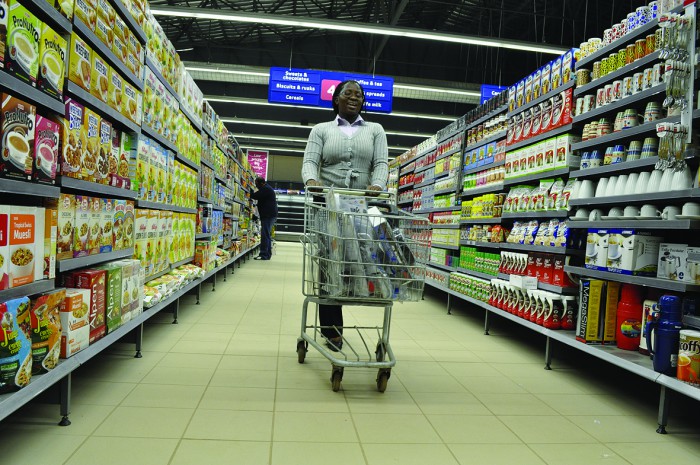By Paul Nyakazeya
PRICES have started going up after a hike in fuel prices triggered by an upward review of tax on fuel by government, which is desperate to raise cash to fund a tight budget. Government increased excise duty on fuel by US$0,05 with fuel service stations immediately responding by hiking prices by up to eight cents per litre.

Excise duty on diesel was raised from US$0,25 to US$0,30, while that for petrol moved to US$0,35 from US$0,30. Petrol is now being sold at up to US$1,57 per litre, from as low as US$1,49 per litre, while diesel rose to US$1,47 from US$1,40.
Finance Minister Patrick Chinamasa also increased duty on car imports. This forced car dealers to adjust prices upwards by varying margins. He also increased tax on mobile phone airtime.
Imminent inflationary pressures on an already battered Zimbabwean economy could trigger anger as the economic condition worsens. A survey by the Financial Gazette indicated that the price of a number of grocery items had gone up in several retail outlets.
A 2kg bag of roller meal now costs US$1,80, from US$1,70, while a 5kg bag, which was retailing at US$4,10 per bag, now costs US$4,90. A bar of laundry soap now costs US$1,10 from US$1,30 before the tax hike, while the price of Colgate toothpaste (100ml) went up to US$1,05, from US$0,90. A 2kg packet of sugar now costs US$2, from US$1,80 before the fuel price hike.
Cooking oil, whose price had marginally declined over the past few months, increased after the tax announcement to US$4,00, from US$3,80 before the tax hike. Mixed fruit jam (500g) increased to US$1,79, from US$1,69. Pampers now cost US$3,40, from US$3,20. Mobile phone operators also hiked tariffs by up to five percent.
In a notice to its subscribers, the State-run NetOne said tariffs would be reviewed. “Please be advised that all call and data rates will increase by five percent from 15 November 2014 in compliance with the recent fiscal directive,” said NetOne.
It was not immediately clear by what margins Econet and Telecel, the largest and second largest mobile telecommunication firms by subscribers respectively, had increased their call tariffs in line with the new tax regime.
“Government is seeking to broaden its revenue base through collection of taxes on fringe benefits. Government has on several occasions increased duty on fuel in order to increase its revenue coffers,” said BancABC in a commentary on the midterm fiscal policy review.
“The first round impact of upward review of duty on fuel will see most service stations adjusting their fuel prices. The second round impact could be a general increase of prices of basic goods in the economy,” said BancABC.
Economists were worried that government appeared to have considered its own interests ahead of those for the country, the majority of whose population is unemployed.
Generally aggregate demand remains weak, with consumers now directing most of their spending to immediate necessities.
With the cost of living in Zimbabwe rising against stagnant salaries, most workers of 30 years and below would need to earn twice as much as they are earning to have the lifestyle their parents enjoyed at the same age. The average salary for the estimated 25 percent of the formally employed Zimbabweans is about US$400, according to experts.
The massive financial deficit is forcing young people to delay key life decisions. Low disposable incomes and the consequent drag on consumer spending power, which translated into low demand volumes, had curbed price increases on the local market. Financial Gazette






